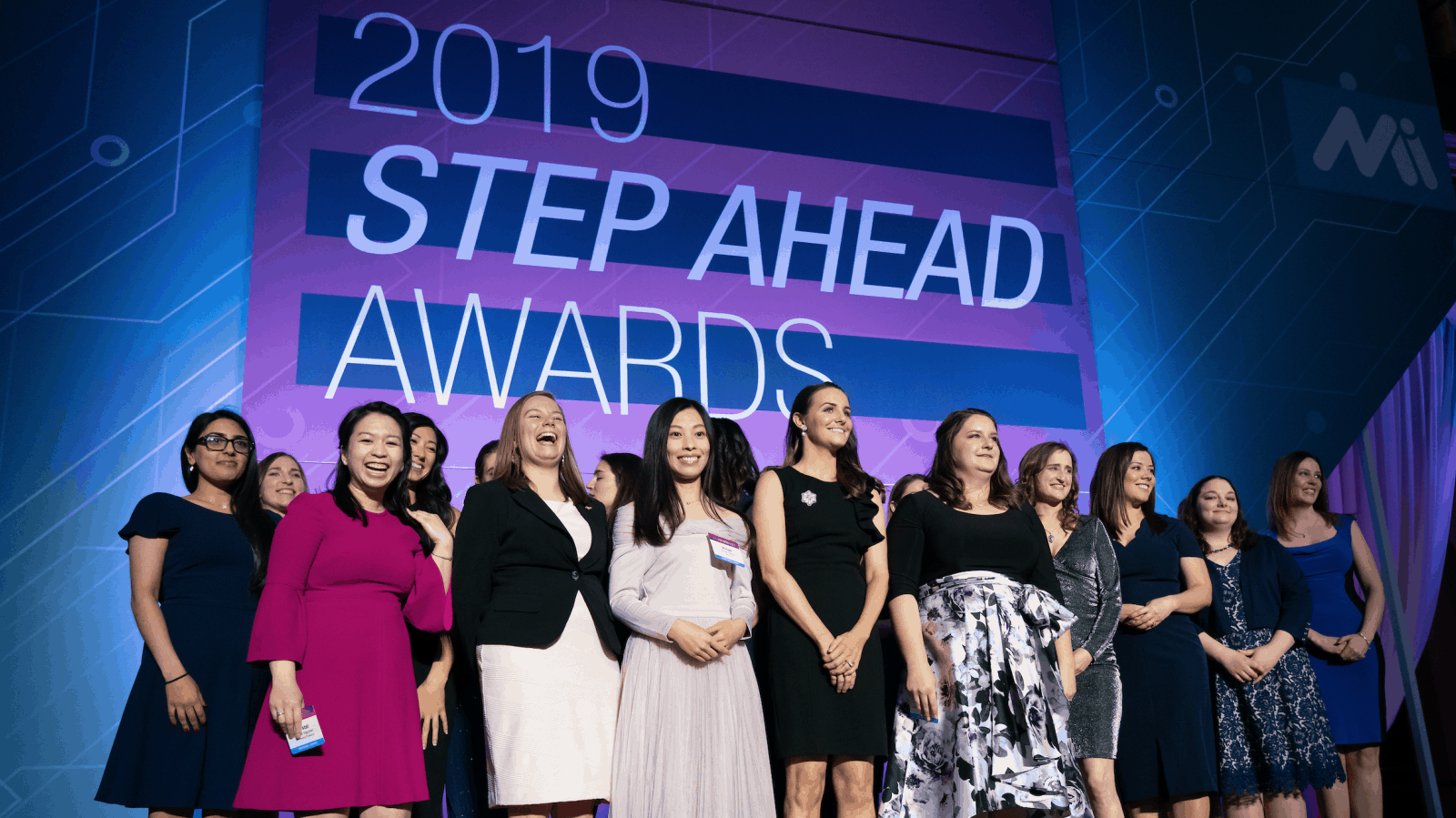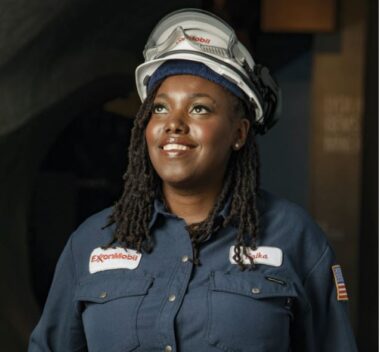An ExxonMobil Engineer Makes a Difference

Erika Anderson didn’t always know she wanted to be an engineer. In fact, for most of her childhood, it wasn’t a career path she had even heard about.
- “I didn’t know what engineering was until my senior year in high school,” said Anderson. “I thought an engineer was a train driver, and nobody told me differently.”
A moment of truth: During her senior year, Anderson was told to research the major she wanted to explore after high school. She searched online, looking for careers for people who liked math and science—and the first thing that came up was engineering.
wanted to explore after high school. She searched online, looking for careers for people who liked math and science—and the first thing that came up was engineering.
- “It was all about people who like a challenge; people who are lifelong learners,” said Anderson. “And as I kept reading, I kept hearing myself in this description. People had always said, you’re smart, you should be a doctor or a lawyer. But nobody ever said engineer.”
Her journey: At Spelman College and the Georgia Institute of Technology, Anderson studied mathematics and mechanical engineering, respectively, while working for GE Aviation and NASA. But it was during a semester spent working at ExxonMobil that she found her passion.
- “ExxonMobil was challenging, and I absolutely loved it,” said Anderson. “I loved the boots, the hard hats, getting my hands dirty. I was able to go out into the field, see all the equipment. I was in awe. I fell in love with it.”
Her job: On her last day in the office during her program at ExxonMobil, the company offered Anderson a full-time job. Today, she’s in her eighth year, working as both the reliability engineer and the reliability coordinator in Baytown, Texas. For ExxonMobil, those are critical roles, tasked with ensuring that the company’s equipment keeps functioning as designed. The way Anderson explains it:
- “Your car comes with a manual and it tells you when you’re supposed to change your oil or rotate your tires. And someone has to figure out how long that oil or those tires can run. I’m not dealing with cars, but I’m dealing with heat exchangers, compressors and pumps. I ensure that this equipment works, that it works reliably, and that we’re making repairs at an interval that keeps your equipment working as it should.”
Making a difference: As a Black woman in manufacturing, Anderson is used to being different from the people around her. She has found herself confronting stereotypes and preconceived notions about who she is. It hasn’t always been easy, but she’s doing vital work—and ensuring that other young women have the opportunity to follow their passions.
An example to others: Anderson was recently recognized by The Manufacturing Institute, the workforce development and education partner of the NAM, as a 2021 STEP Award Emerging Leader. The award is presented to women leaders in science, technology, engineering and production careers who exemplify leadership within their companies and in manufacturing in general.
- She’s also been featured in a book called Everyday Superheroes: Women in Energy about women in different fields in the energy industry; a TV show on CBS highlighting women in STEM; and a project by The Smithsonian and IF/THEN to put up 120 3D-printed statues of women trailblazers in Washington, D.C.
Advice for others: Anderson is an advocate for other women who are considering a career in manufacturing. She encourages women to find mentors, build a network and, above all, be confident.
- “Self-doubt is real, and sometimes, we can be our own biggest critics,” said Anderson. “We have to understand that we are excellent. We are great. And at the end of the day, for any woman coming to this industry—if you’re even thinking about it—there’s something in you. If it were easy, everyone would be doing it.”
The last word: “My grandmother always told me: you’ve got to get comfortable with being uncomfortable. The only way things will change is by having more people like me in the room. We are just as capable as anyone else, and whatever preconceived notions that may exist, I am here to kick those doors down.”
